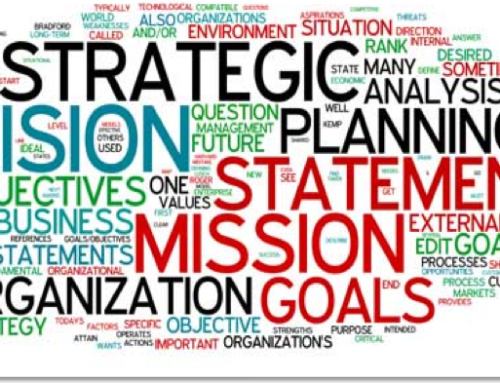 I’ve been known to “occasionally” jump on my soapbox to rail against everything from students’ inability to write coherent sentences to public transit systems’ inability to provide anything vaguely resembling “service.”
I’ve been known to “occasionally” jump on my soapbox to rail against everything from students’ inability to write coherent sentences to public transit systems’ inability to provide anything vaguely resembling “service.”
I’ve also been “gently” encouraged to “ease up on your expectations, Kirk” by any number of professional colleagues…as well as students.
Unh-unh. Not gonna happen.
My Public Relations Concentration students (and others) at Curry College have gotten used to seeing circles, underlines, question marks, and various other editorial notations including snarky comments on virtually every paper that they send my way.
Newspapers and other media have become inured to my frequent “letter to the editor” assaults, most of the time wisely choosing to ignore my comments on ethical misbehavior and/or lack of transparency in governmental or business affairs.
To answer the unasked question, “No, I don’t think the world is going to crash and burn.”
What I do think is that perceptions… fueled by expectations… can and will lead to a fascinating assortment of public relations challenges that we, as PR professionals, will have to deal with.
Perception is, in the eyes and mind of the beholder, reality.
I love, when we are discussing a current dilemma in my “Principles of PR” class, to throw out the simple but maddening… “Is this a problem? What would you do?”
The panicked look on most faces as they feverishly leaf through the textbook says it all, and, inevitably, one brave soul will meekly ask, “What page is the answer on?”
To which I respond… “It’s not.”
Then I explain (for the bazillionth time) that that is the beauty and the challenge of public relations.
Our job is to be acutely aware of public perceptions of our client or employer and to be prepared to explain, clarify… or defend… our mission/reason for being.
What this means is that we must also be acutely aware of the realities of that client’s or employer’s operations.
- What’s really going on in that building? (I used to work in a building surrounded by chain-link fences with barbed wire coils at the top and frosted windows all around and folks with guns at every entrance.)
- What’s really in that liquid that’s seeping into the local water supply? (My first media call at one company was from a local reporter wanting to know if we were still dumping gunk into the stream behind one of our facilities…We weren’t. Stopped two years before. Didn’t tell anyone.)
- What’s really the cost of producing that widget? (Once worked for a manufacturer that went from a reportedly multi-million-dollar profitability to a seriously-negative-millions-of-dollars deficit.)
The list goes on.
Things we think have been resolved keep bubbling back to the surface to be dealt with yet again. And smug complacency flies out the window with gusto.
Our challenge as communicators is to do just that…communicate.
Our neighbors don’t know what we’re doing inside our wonderfully-modern-looking factory walls. All they know is they hear bumps and clangs in the night, or they smell odd odors wafting from our ventilators.
Or maybe our business is such that we can’t tell them exactly what’s going on (worked for someone like that).
If we’re serious, though, about our roles as the conduit between the internal “us” and the external “them,” we have to find a satisfactory middle ground that fosters understanding.
There are no “how-to” manuals for this, although I frequently turn to Ivy Lee’s “Declaration of Principles” for guidance (or reassurance that I’m on the right path).
The bottom line is that successful public relations practice demands acknowledgement of perceptions and clarification of reality.
It’s as simple…and as complicated…as that.
Image: UW Digital Collections via Flickr, CC2.0
![[EVENT]: PR Hacks for Small Biz (online)](https://shonaliburke.com/wp-content/uploads/2021/06/FB-Ad-1200x800-01-01-01-Copy-500x383.jpeg)








[…] line of work. “Shape and maintain” helps us see that PR is an ongoing process. According to Professor Kirk Hazlett of Curry College, “Our job is to be acutely aware of public perceptions of our client or employer and to be […]
[…] I truly think that if you want to know what sets your client apart from the herd its competition, you have to find out what others think … and not just those in senior management. So as soon as possible, meet with and hear […]
To Daniel J. Cohen ‘s point – there are a lot of people claiming expertise, but not that many with real expertise. Or who’ll take the time to develop it. And then there are those who are amazingly smart, but could care less about being acknowledged as such. Crazy, huh?!
You’ve written about this before, Kirk, but curiosity is a must in our field – we should be asking all the questions people will ask as well as those they won’t. And I think the other big quality, without which you can’t really do well – is empathy. We have to be able to put ourselves in other peoples’ shoes, as well as those of our clients, else we don’t communicate on the level we should.
@arkarthick Thanks so much for sharing @KirkHazlett post!
@lisagerber Ditto & @Jess_AsPRing too! @KirkHazlett
@fairplay365 Thanks for sharing.
Good article Kirk. I went down the link-web rabbithole regarding experts when I was reading your piece, and had a good hard think about how this relates to overall perception. I think in social media and PR perceived experts are acccepted as experts, but I am coming to the conclusion that the very theme of your piece suggests to me that there are NO experts in social media and PR. It’s not the fault of the people, but the nature of the field.
It’s certainly our job as communicators to communicate, as you put it. Without that, we don’t really do much at all. But communication isnt exactly autoshop mechanics. It’s a field with consistently changing variables, mostly of the extreme variety.
When I want an expert, I want someone who can tell it like it is becuase he/she know EVERYTHING there is to know. We doon’t have the luxury/burden of working in that kind of field. We play with perceptions… and there is something very special about that.
Daniel J. Cohen Thanks, Dan. I suspect there truly are experts out there, but there are many, many more who are not but pretend to be. But, as now an educator and previously as a practitioner, I believe it is my responsibility to make myself as smart as possible in the area(s) for which I represent.
The driver behind all THIS is remembering that ethical public relations practice is the main concern…not (as I said in a response to someone else on LinkedIn…who didn’t seem to grasp my meaning) “putting lipstick on a pig.”